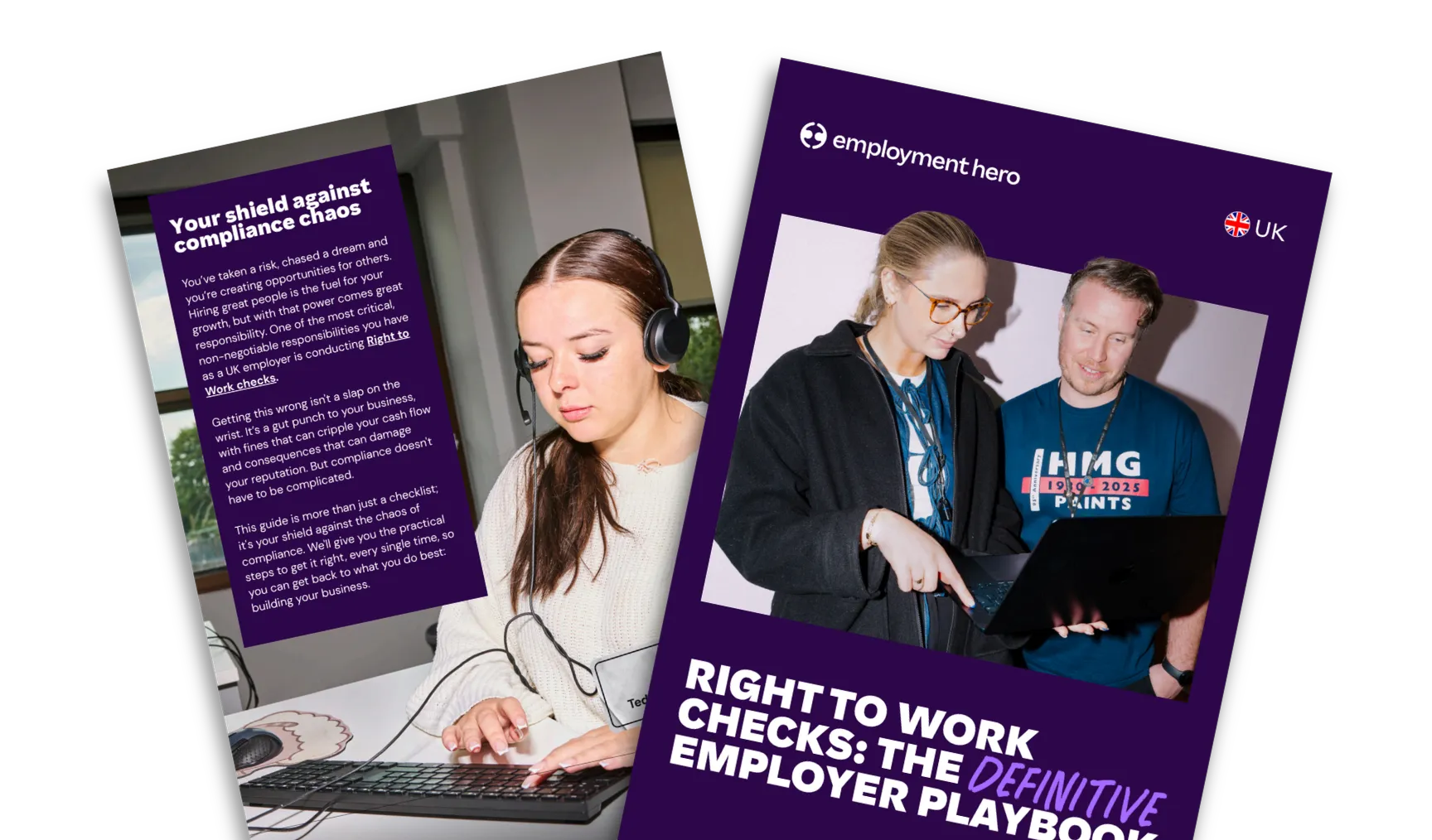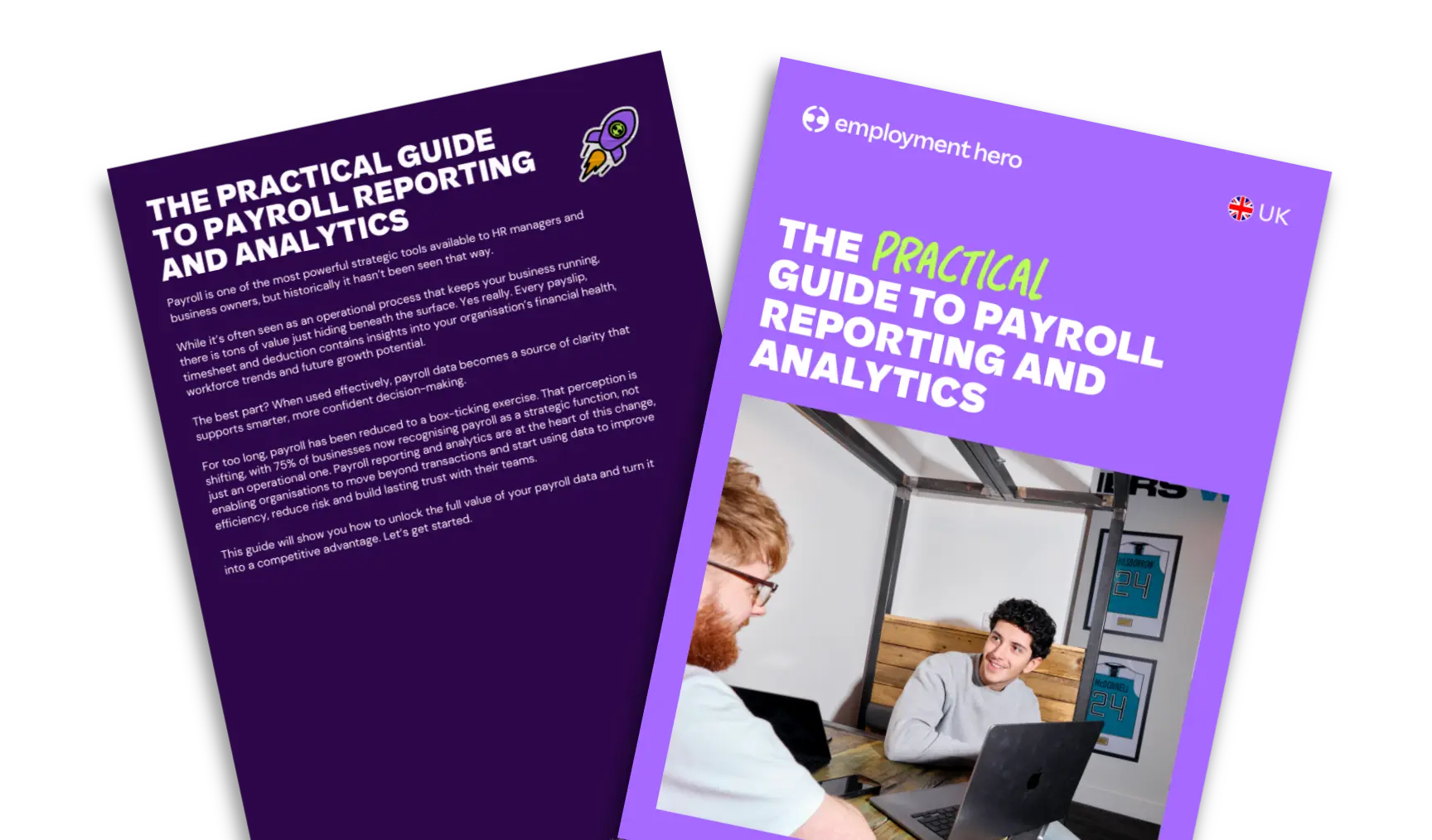Workplace Drug and Alcohol Policy Template
Published
Workplace Drug and Alcohol Policy Template
In the workplace, dealing with any drug or alcohol use, isn’t something most business owners, leaders and HR professionals expect to deal with often. However, it’s best to ensure that you’re covered by implementing a Drugs and Alcohol Policy, so if the issue ever arises, you have clear guidelines on what to do.
Download our fully customisable Drug and Alcohol Policy template now. Vetted by employment lawyers and completely free.
Why should businesses implement a Drug and Alcohol Policy?
Establishing your own company policy is key to making sure employees know that they must not attend or perform work while under the influence of drugs or alcohol. This policy template outlines both your business’s role and your employees’ responsibilities regarding drugs and alcohol at work.
The objectives of a Drug and Alcohol Policy are to help your business with:
- Ensuring the health and safety of everyone in your workplace
- Explicitly stating to your workforce that drug and alcohol abuse is not tolerated
- Indicating under what circumstances limited alcohol consumption may be permitted at work (eg at work parties)
- Telling employees what support is available if they are suffering from alcohol or drug-related issues
Download our free Workplace Drug and Alcohol Policy Template now.
Workplace Drug & Alcohol Policies: A guide for UK businesses
Every employer should have a clear policy dealing with drug and alcohol use at work. All employers are under a duty to protect the health and safety of individuals in the workplace and part of that duty involves preventing the health and safety risks of someone attending work under the influence of alcohol or drugs.
A Drug and Alcohol Policy allows an employer to give employees a clear message that drug and alcohol consumption is not permitted at work. Without doing so it can be hard for employers to take disciplinary action against a staff member who is under the influence of drugs or alcohol in the workplace. It also allows businesses to explain when alcohol consumption might be permitted (e.g. at a work party) and what support the company will provide to employees suffering from alcohol or drug-related issues.
Legal framework
Obligations for employers to provide a safe place of work are found in the Health and Safety at Work Act 1974.
Whilst drug or alcohol addiction is not considered a disability under the Equality Act 2010, the effect of drug or alcohol dependency (liver disease, depression, etc) could be. Employers with an employee who suffers from such a disability would need to consider any “reasonable adjustments” they could make in the workplace to assist an employee with their health issues, e.g. time off to seek treatment, etc.
Benefits of implementing a Drug and Alcohol Policy
Benefits of implementing an effective Drug and Alcohol Policy include:
- Risk reduction and accident prevention
- Improved productivity and reduced absenteeism
- Legal protection and compliance
- Supporting employee wellbeing
Key components of an effective policy
We consider the key components of an effective policy to include:
- Clear definition of prohibited substances and behaviors
- Details of any testing procedures and protocols
- Consequences for policy violations
- Support options for affected employees
- Statements assuring employees that their confidentiality and privacy will be protected as far as possible
Testing and searches
Alcohol or drug testing will only likely be lawful where it is reasonable on health and safety grounds. If you wish to implement testing, you should therefore first carry out a risk assessment to show why it is reasonable to require testing in your workplace (e.g. because employees operate machinery or vehicles, etc.).
Testing is also only possible where employees consent to this, therefore you should include a clause in their employment contracts whereby they agree to testing as a condition of their employment. If they later withdraw their consent this could be treated as a disciplinary issue (which could lead to termination of employment).
Similarly, if you wish to have the right to carry out searches of employees for possession of alcohol or drugs in the workplace you should include a clause in their employment contract requiring agreement to this as a condition of their employment.
If you need template clauses for this purpose, our HR Advisory service includes access to all the employment contract template clauses you are likely to ever need.
Implementation best practices
As with the introduction of any workplace policy it is best practice to consult with employees (and any relevant trade unions) before a new policy is implemented.
A simple way to do this is to produce a draft of the policy and send it to all the interested parties and let them comment on it before it is finalised.
You may also need to consider whether managers and supervisors need any training in the policy, particularly if you are going to have any sort of drug or alcohol testing program.
It will be important that the policy is applied fairly and consistently, i.e., that any breaches of the policy are dealt with in a uniform way. You should also make sure the policy is periodically reviewed and you consider whether any updates are needed.
Supporting your employees
Your policy should set out that you will provide reasonable support to any employee suffering from drug or alcohol issues and where they can go for help.
A great way to provide assistance to employees struggling in this area is to provide them with access to an Employee Assistance Program (EAP) which will provide them with confidential counselling sessions and other services.
Common pitfalls to avoid
Common pitfalls that arise with Drug and Alcohol Policies include inconsistent enforcement and lack of clear rules.
If your policy says that it is always against the rules to consume alcohol in the work day, it will lack legitimacy if some employees are allowed to come back from boozy client lunches and continue working.
And if your policy says alcohol must never be consumed in the office – how will you be able to enforce other parts of the policy if there is an accepted practice of Friday night office drinks?
Much better is to set out in the policy the circumstances under which alcohol consumption is permitted, but make clear the rules around this. For example it is only allowed with a manager’s express permission and no staff member should never drink to the point of intoxication or where they will be driving a vehicle or operating machinery.
Manage all your employment needs with Employment Hero
An effective Drug and Alcohol Policy is an essential tool for every business to protect the health and safety of its employees, to allow alcohol or drug misuse to be dealt with effectively and to communicate the support available to employees who may be suffering from alcohol or drug-related issues.
We’ve put together a free downloadable Drug and Alcohol Policy for you to implement in your business today, and if you ever need to discuss an issue involving drugs or alcohol at work, our HR Advisory service provides unlimited access to a team of expert HR advisers.
Our all-in-one Employment Operating System has everything you need to manage HR and payroll in a seamless, human and AI-powered solution—empowering both you and your employees.
One system. Everything employment.
Download the drug and alcohol policy template
Related Resources
-
 Read more: Right to Work Checks: A Complete Employer’s Guide (2025 Update)
Read more: Right to Work Checks: A Complete Employer’s Guide (2025 Update)Right to Work Checks: A Complete Employer’s Guide (2025 Update)
Ensure compliance with UK right to work checks. Discover how to complete manual, digital, and online checks correctly and meet…
-
 Read more: A Business Owners 2026 HR Compliance Calendar: Stay Confident, Stay Compliant
Read more: A Business Owners 2026 HR Compliance Calendar: Stay Confident, Stay CompliantA Business Owners 2026 HR Compliance Calendar: Stay Confident, Stay Compliant
Stay ahead in 2026 with our HR Compliance Calendar. Key deadlines, legal updates and compliance tips to keep your business…
-
 Read more: The Ultimate Guide to Payroll Reporting and Analytics
Read more: The Ultimate Guide to Payroll Reporting and AnalyticsThe Ultimate Guide to Payroll Reporting and Analytics
Published Published Payroll for HR managers and business owners is one of your most powerful strategic tools. While it is…



















